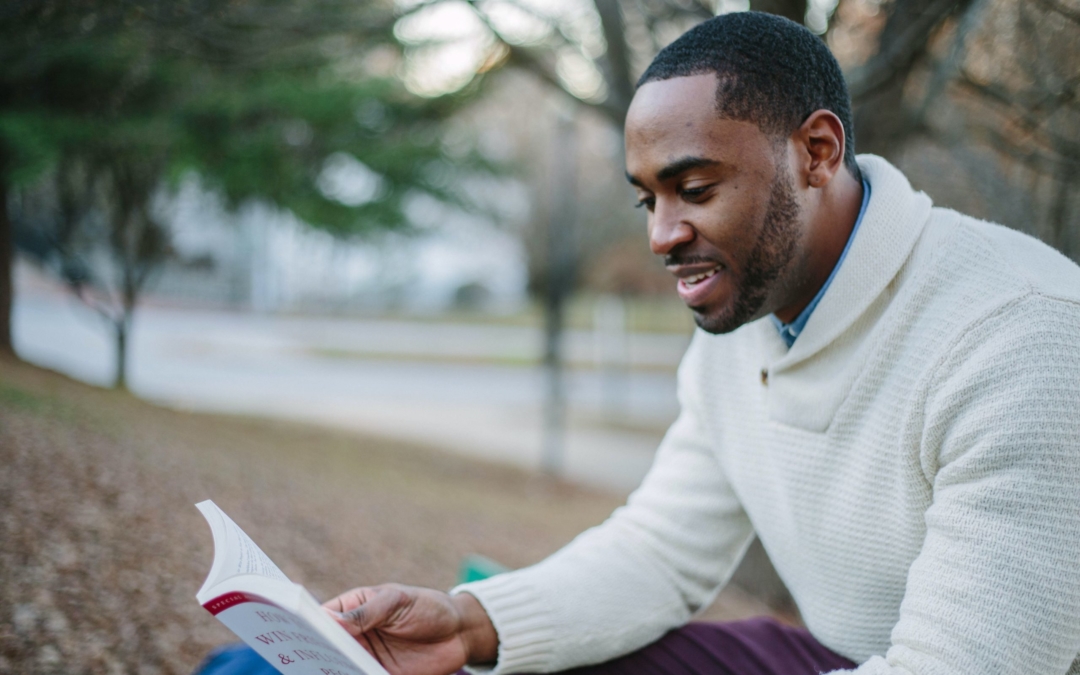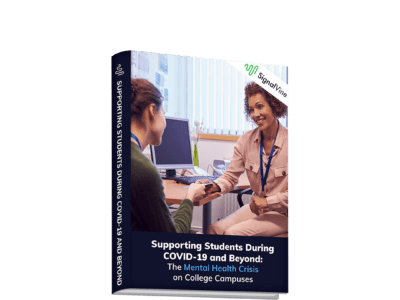A Student’s Perspective: Mental Health over the Holidays


A Student’s Perspective: Mental Health over the Holidays
My name is Haleigh Cadd, I’m a senior at Wake Forest University. In this blog, I’m here to offer a perspective on Signal Vine’s mental health over the holidays webinar. In this discussion, American University’s Assistant Vice President of Campus Life, Traci Callandrillo, and Active Minds' Director of Engagement and Training, Becky Fein, covered students’ mental health during the pandemic. They also went over how students and staff can foster better mental health over the holidays.
What Traci Callandrillo echoed from my own COVID-era student experience
As a student, one thing that strongly resonated with me was VP Callandrillo’s statement that mental health severity and prominence has increased in college student populations during the pandemic. As a senior who has lost sleep over COVID's impact on her post-undergraduate plans, this is absolutely true. Thus, the challenges I’ve seen in my mental health over the holidays have been exacerbated.
For example, just when I thought the dust was settling over my senior year, COVID all but destroyed my confidence. In other words, I’ve spent four years preparing myself for a specific trajectory after I graduate. However, COVID has called into question what my life will look like post-graduation.
My student experience during COVID
I cannot speak for every college student going through this pandemic. Although, as for my personal experience, I've constantly asked myself these questions: What else can I do? Am I making the right moves and taking advantage of the opportunities I have right now?
Due to these questions, my motivation to succeed in my classes and in my internship increased. I guess in my mind, all that I can control are the actions I take to get the best outcomes during the pandemic. More specifically, all I can do in this pandemic is navigate my final semester to produce the best post-undergraduate outcomes.
As a result of my manic desire to succeed despite the pandemic, I've found that I'm anxious about things I've never been anxious about. Some evenings, I've set my morning alarm, then checked it three or four times before I went to sleep. In these moments, I've worried that my eyes were lying to me every single time.
I also felt the inclination to map out a brand-new ten-year plan. When I told an advisor that I did this early in the semester, she said: “Oh, no, don’t do that!”
She was right. Maybe worrying about something that isn't going to happen in five years–let alone ten–wasn't worth thinking about.
I've also found myself double-checking the details of assignments on the syllabi more frequently. For instance, I've closed out the webpage, then worried that I misread the due date. I'll end up pulling up the same page again and again until it's seared into my memory. I think this obsession with getting everything right stemmed from the worry that I wasn’t doing enough.
In short, from my experience, COVID has exacerbated college-induced anxiety around my student success. This has led me to seek out advice and guidance from college staff members. In these conversations, I've seen the things that Fein and Callandrillo talked about.
How I've seen Becky Fein's V-A-R method practiced by mentors in my life
As Callandrillo and Fein both mentioned, college is ‘weird’ and ‘hard.’ Thus, frequently, I’ve turned to an advisor from the Chaplain’s office, Ellis, for guidance through some typical, challenging college experiences.
Two things I’ve talked to Ellis about are things such as the feeling of belonging and balancing socializing with studying. When I embarked on my first COVID-era semester, I talked to her about the stresses that the pandemic has brought.
The V-A-R method and how it can positively impact mental health over the holidays
In every conversation we’ve had–whether or not the challenge is intense–Ellis always validated what I felt. This is why I know the V-A-R method Fein mentioned works. In short, the V-A-R method stands for ‘validate,’ ‘appreciate,’ and ‘refer.’ Here is an overview of the V-A-R method on the Active Minds website.
As a student, I always appreciate validation over the challenges I face. This is because more often than not, there are few conversations between other students about the challenges they’re facing. Thus, ‘appreciating’ the fact that a student shared their feelings with you is even more important. This is because, in the student's mind, they could be judged for what they shared.
Finally, ‘referring’ a student is a golden suggestion. I’ve dealt with many unique student-centric challenges that I’ve later learned from multiple staff members there are resources for. Therefore, referring is, from my perspective, the best-case scenario in a conversation with an advisor.
These are the tips that Callandrillo and Fein gave towards fostering mental health over the holidays
Thankfully, this past semester provided me the opportunity to intern in a socially distanced office environment through the intern program called Wake Washington. Using a ‘pandemic pod’ mentality, three other students and I worked in separate offices at the Wake Washington center, logging in and doing our internships remotely.

However, when I returned home for the holidays, I noticed the difference in my mental health. Being in the same room where I work for my internship, write papers, login to class, and sleep has made ‘my wheels keep turning.’ If I’m not thinking about my internship, I’m thinking about papers.
If I’m not thinking about papers, I’m thinking about the moment that everyone in the U.S. is vaccinated–so that life can continue normally. Thus, what I’ve found, is that there isn’t a divide between ‘work’ and ‘disconnect’ when I indulge in both during the week.
This is where I made sure to tune in and listen to every word Fein and Callandrillo said about mental health over the holidays. While most of these tips applied directly to staff, one of the things Callandrillo emphasized was the use of ‘boundaries.’
In other words, I absorbed this piece of advice as I should learn when to change the channel in my brain. That is, I should ‘change the channel’ if the thought that I’m turning over in my mind isn’t a priority until 9:00 AM the next day–or if I can meet with my professor to talk about the assignment snag I have to force myself to stop thinking about.
Learn more
All in all, while this webinar was geared for college staff to talk about mental health over the holidays, this webinar had content in it that I, as a student, appreciated. The pandemic has thrown a wrench into a student’s landscape, but I’m grateful that professionals such as Callandrillo and Fein recognize this.
You can watch the full recording of the webinar referenced in this blog here. Also, if you’re looking for more tips on how to address students’ mental health in the pandemic, read our blog post here.

Related Resources
Communicating effectively with your campus communities is of paramount importance right now
If you’d like to learn how Signal Vine can help, please join us for a demo.

